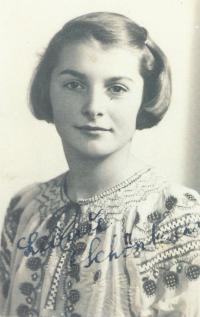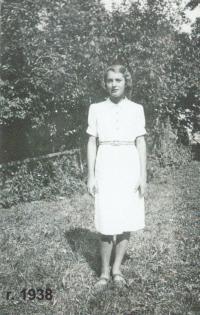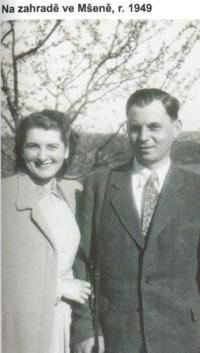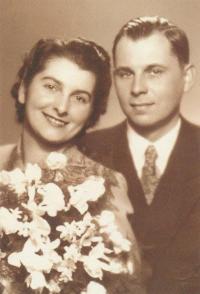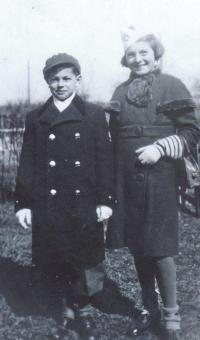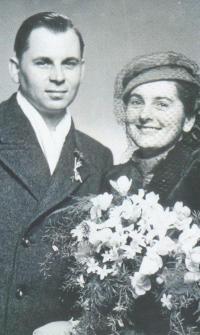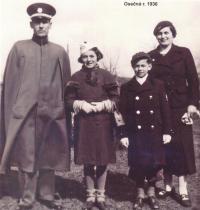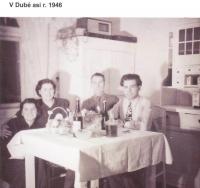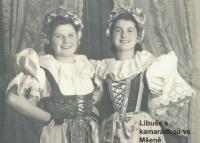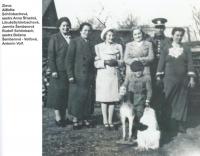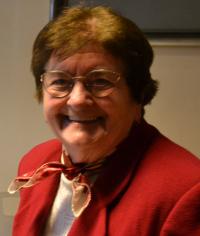Our neighbours stopped talking with us because we were Czechs
Libuše Němcová, née Schönbachová, was born on 15 March 1925 in Mladá Boleslav. Her father was a gendarme, so they often moved to where he was stationed. She grew up in the border region, in Osečná, from where she was deported to Mšeno in 1938. Her father joined the resistance; during one big raid on the gendarme station he was arrested and taken to Terezín. Libuše Němcová married in Mšeno and continued to run a funeral business there.


